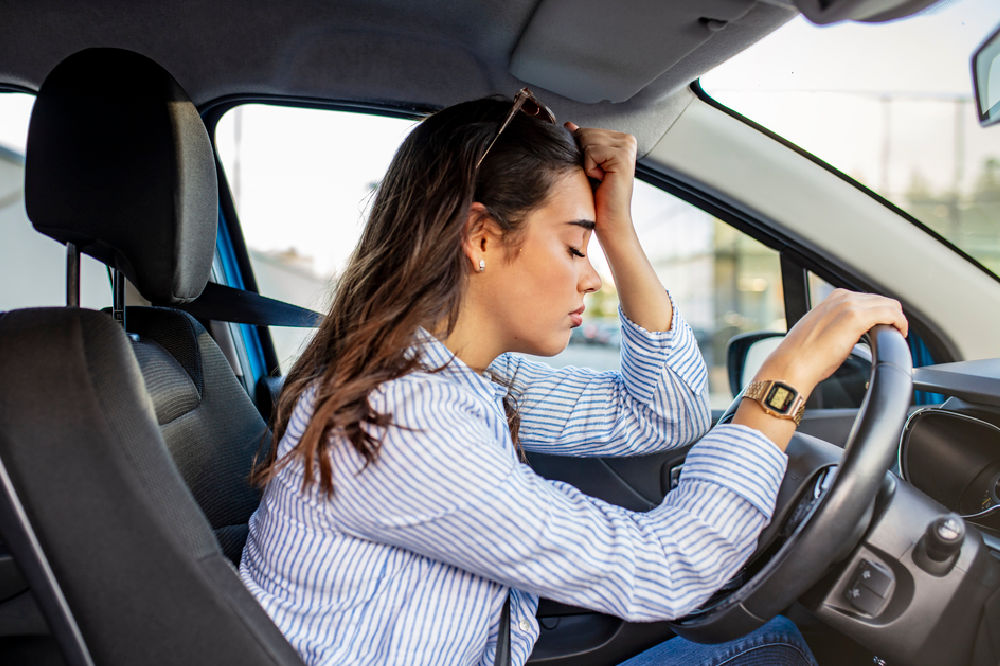If you’ve been involved in a car accident, you may face a series of injuries for which you will seek compensation. Physical injuries are often more apparent, and getting coverage for them is fairly standard. However, mental trauma and injuries are just as significant and deserve proper compensation.
Victims often experience anxiety or depression following a car accident. The stress of getting back in a car can be the clearest indicator that they have experienced mental trauma.
In Indiana, if you have been in an Indiana car accident as a driver, passenger, or pedestrian and are suffering from depression or anxiety as a result, you are entitled to compensation.
What Does Anxiety After a Car Accident Look Like?
Anxiety is feeling worried, or unsure about something with an uncertain outcome. After being involved in a car accident, a victim’s brain remembers that experience, and those feelings of apprehension may arise every time they attempt to drive or even ride in a car.
Not limited to the stress of being behind the wheel, anxiety after a car accident may include:
- Post-Traumatic Stress Disorder (PTSD)
- Difficulty sleeping
- Stress related to physical injuries from the accident
Symptoms of Anxiety
Anxiety can manifest in several ways. It can be a consistent daily struggle or resurface in triggering scenarios, such as getting back into a car after being in a car accident.
Some signs of anxiety include:
- Feeling lightheaded or dizzy
- Heart palpitations or chest pain
- Restlessness and irritability
- Imagining the worst-case scenario
- Feeling panicked
- Nervousness and inability to relax
- Trouble concentrating
- Sense of detachment
Symptoms of Depression
Depression often affects victims daily for short to long periods of time. Symptoms can build over time, starting as something small, like feeling tired, and growing into more serious symptoms like the inability to get out of bed. Depression can be caused by a chemical imbalance, seasonal shifts, or a traumatic event.
Some signs of depression include:
- Loss of interest or pleasure
- Sadness and apathy
- Sleeplessness or insomnia
- Loss of appetite
- Troubling remembering or thinking clearly
- Feeling worthless
- Tiredness and inability to complete even small tasks
- Recurring thoughts of death and suicide
Connecting Your Symptoms
If you are seeking compensation for depression or anxiety, you must show the connection between your car accident and your mental health struggles. You can make this connection in two ways:
- Negligent infliction of emotional distress is when someone’s negligent behavior caused your symptoms. Your anxiety or depression must come from either a physical injury from the accident or you must show that are experiencing physical symptoms as a result of your mental health.
- Intentional infliction of emotional distress means that the responsible party’s behavior must be reckless or dangerous and the behavior itself is causing your symptoms. Some states allow compensation without a physical symptoms while others require it to seek damages.
Compensation for Anxiety and Depression
Seeking compensation for anxiety and depression after a car accident is more complicated than doing so for physical injuries. Insurance companies often push back or offer a low settlement. That’s why it’s critical to find a personal injury attorney in Indiana to help you.
Compensation will vary depending on the skill of your attorney and the information you provide. It’s crucial after any accident, even if you aren’t physically harmed, to submit an accident report and begin tracking any mental or physical symptoms after the accident.
Eggshell Skull Rule
In Indiana, people who have had pre-existing mental health symptoms and are seeking compensation for worsening symptoms due to a traumatic event are protected. Put simply, the Eggshell Skull Rule states that responsible parties don’t get to pick and choose what injuries they may have caused a victim. Just as a person’s underlying condition may make their bones more susceptible to breaking even in a minor collision, pre-existing mental health issues do not disqualify a car accident victim from compensation if they worsen after the incident.
Receiving Compensation
To receive your compensation, you will need to build a case with a personal injury attorney. First, get a medical diagnosis from your current therapist or a clinical psychologist confirming that you are suffering from depression and anxiety. Showing that you have been seeking mental support from a professional will strengthen your case. Next, work with your attorney to calculate how much the accident has cost you. Costs can include therapy, medication, and missed work.
Anxiety and depression after a car accident can seriously affect your quality of life. It’s important to understand that you can seek compensation for those conditions. Although getting the help you need will cost money, the at-fault driver’s insurance should pay you a reasonable amount so you can move forward with your life. At Crossen Law Firm, we believe in victims being fully compensated regardless if they have been physically or mentally harmed. Contact us today to get a free consultation.

 317-401-8626
317-401-8626 
.jpg)